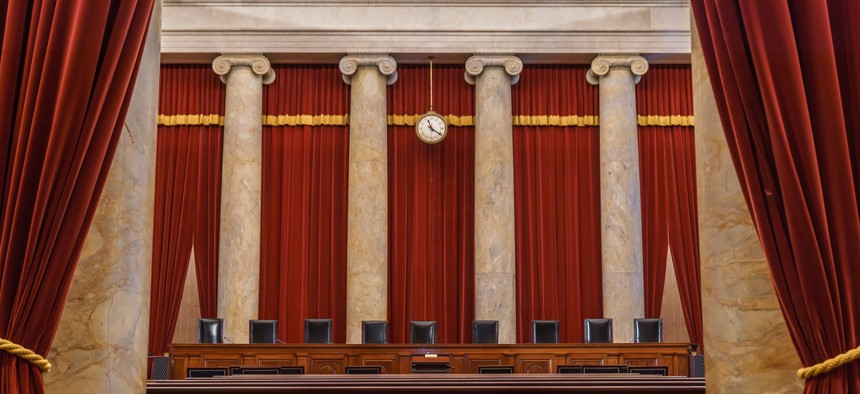Supreme Court Makes Decision in Age-Discrimination Case

The Supreme Court on Tuesday decided the case of Mount Lemmon Fire District v. Guido. Shutterstock

Connecting state and local government leaders
All state and local governments, even very small ones, are subject to the Age Discrimination in Employment Act.
All local and state governments—no matter their size—need to comply with a federal law banning discrimination against employees on the basis of age, the U.S. Supreme Court decided Tuesday.
The case stems from a dispute between a small Arizona fire district and two firefighters, who were laid off in 2009 during a budget crisis. John Guido and Dennis Rankin say they were terminated because they were the oldest employees at the district covering the Santa Catalina Mountains, later filing an age discrimination lawsuit.
But the issue before the Supreme Court was not whether the Mount Lemmon Fire District discriminated against Guido and Rankin. Instead, the justices looked at if a small public employer like Mount Lemmon could even be sued under the Age Discrimination in Employment Act of 1967.
The fire district, which at the time of the lay off had just 13 full-time employees, argued it was exempt from the law, as is the case with small businesses with fewer than 20 workers. But Guido and Rankin, along with the Equal Employment Opportunity Commission, said the law covers all governments.
In a short opinion, Justice Ruth Bader Ginsburg sided with the firefighters. All the other justices joined the 8-0 decision, except new Justice Brett Kavanaugh, who didn't take part in the case because he wasn’t on the court when it was heard in early October.
Ginsburg agreed with a 9th U.S. Circuit Court of Appeals opinion that the case came down to two sentences in the federal law, which was amended in 1974 to apply to state and local governments. The question: Did Congress mean to include all governments or exempt smaller ones, like special districts?
Ginsburg decided the plain language of the statute shows that all governments were included.
“The Fire District warns that applying the ADEA to small public entities risks curtailment of vital public services such as fire protection. Experience suggests otherwise,” Ginsburg wrote.
The justice noted that the EEOC has long interpreted this federal law to apply to all state and local governments. A majority of states also apply their own laws banning age discrimination to all governments, Ginsburg wrote.
“No untoward service shrinkages have been documented,” she continued.
Jeff Matura, a lawyer representing the Mount Lemmon district, noted that there had been an appellate court split about the application of the federal law to smaller public employers, with some courts siding with the governments. "The Supreme Court has now clarified what the law is across the country, which is helpful," he said.
But Matura acknowledged that the decision was a disappointment, saying application of this federal law to smaller government offices will open them up to more lawsuits.
"It does increase the exposure for smaller political subdivisions and fire districts that exist on a shoe string budget and provide these services to small communities," he said. "It now puts them at greater financial risk."
Don Awerkamp, a lawyer representing Guido and Rankin, said they are happy with the decision and the fact that it was unanimous.
The parties now head back to the federal district court for consideration of what actually happened almost a decade ago. “We will be trying the case,” Awerkamp said.
Fire district officials have said that Guido and Rankin were laid off, at least in part, because they hadn’t volunteered for wildfire fighting duties. Matura said the district denies that they were let go because of their age.
But Awerkamp said the wildfire reason that was given was “really baloney,” adding that the two firefighters were captains and as supervisors needed to be available for regular duty. “They always had plenty of volunteers to do the wildfire fighting because they got paid more to do that,” he said.
RELATED on Route Fifty:
Laura Maggi is the Managing Editor at Government Executive's Route Fifty and is based in Washington, D.C.

NEXT STORY: The U.S. Now Has More Than 56.7 Million Freelance Workers—and They Vote





